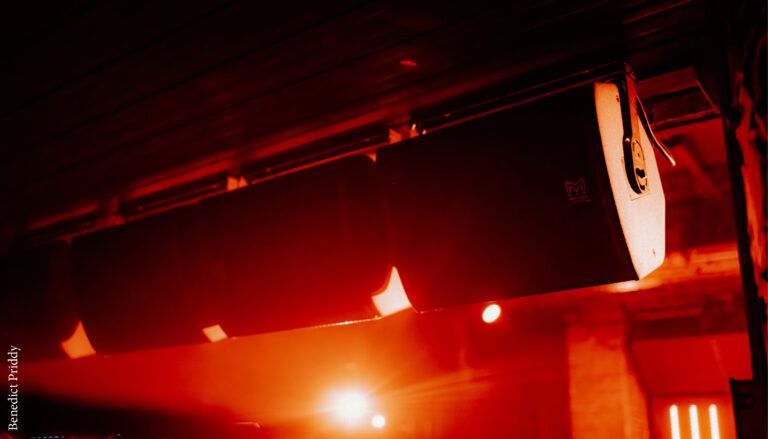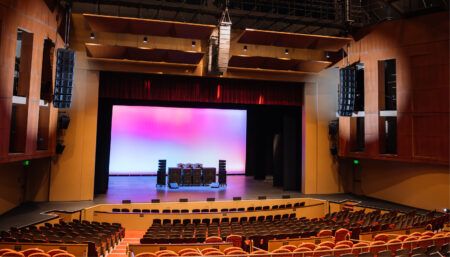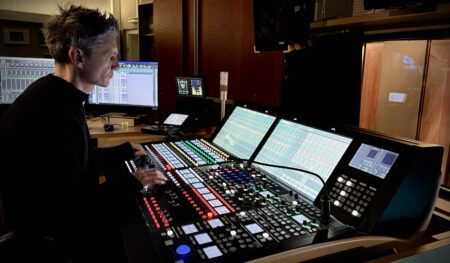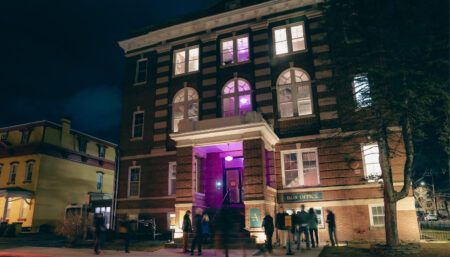UK nightclub fabric London has extended its relationship with Martin Audio – which dates back nearly a quarter of a century – by announcing a substantial upgrade to its flagship Room 1.
Since the installation of Martin Audio W8C, Blacklines and WSX subwoofers at the start of the new millennium, the club has never looked back, having gone through several generations of Martin Audio systems.
When it came to the latest refresh, the club’s technical manager Matt Smith decided to follow a different path. Nervous at the prospect of losing what he describes as “that distinctive Room 1 sound” he asked Martin Audio if they would overhaul the existing 20-year-old W8L line array by fitting it with new drivers. The manufacturer was happy to oblige.
However, it was quite a journey before that decision was reached, and involved auditioning several different brands. “Although they all sounded amazing it was just going to change the character of what the room was about,” said Smith.
Smith was also mindful that fabric founder Keith Reilly had countenanced the original switch to Martin Audio, and “there was a romanticism about this system”. Finally, he consulted the club’s inner pool of promoters, DJs and sound engineers, along with his in-house team. “They were unanimous that we should renovate in order to retain the signature Martin Audio sound and preserve what is quite a historic installation,” said Smith.
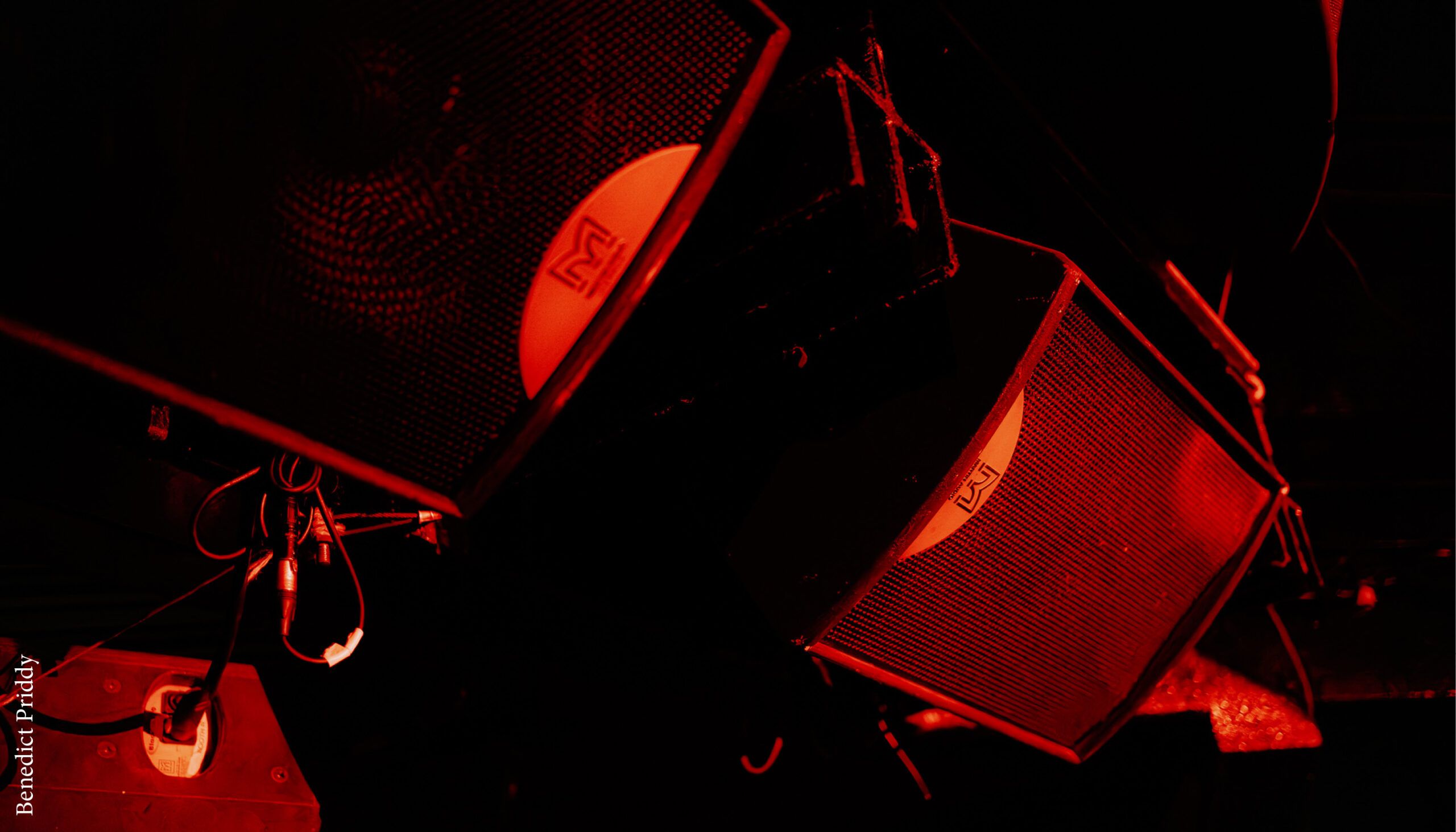
Smith decided to support the re-energised mid-tops with an entirely end-to-end Martin Audio infrastructure, including SHX218 2 x 18” subs, iKON multi-channel DSP amplifiers, new FlexPoint speakers and XE300 – at the same time repurposing the classic and utility Blackline F12s that have delivered DJs’ reference sound up in the booth.
The new Room 1 layout offers the familiar sight of the four newly powder-coated four W8L, two left and right on the stage, matched with repurposed W8C, two left and right at the back.
The eight SHX218 subwoofers, designed in a broadside array under the front of the stage, required a piece of clever construction, once the club had decided to revert to a horn hybrid. These are much bigger, so they needed to take the wheels off and enlarge the cavities under the stage.
Martin Audio’s technical support team of Dan Orton, Ben Tucker and Paul Connaughton provided design support for time alignment of the sub arrays.
There are 10 Martin Audio iKON amplifiers – nine iK42s running the bulk of the system, with a single iK81 driving the MF/HF for the main enclosures.
The club’s original DSP and networking had been entrusted to the Soundweb environment but the DSP for the sub array, along with delay times and all presets have now transferred to the process-controlled iKONs. “The amps are immensely powerful, and I think we would do some structural damage if we turned them up to their max,” said Smith. “It’s nice because we are just ticking over with our outputs on the amps whereas before we would have physically needed to constantly check [our amps] just before peak. The beauty of the iKONs is that they self-monitor and with the processing now taking place in the iKONs, we can monitor them remotely via [Martin Audio’s] VU-NET software.”
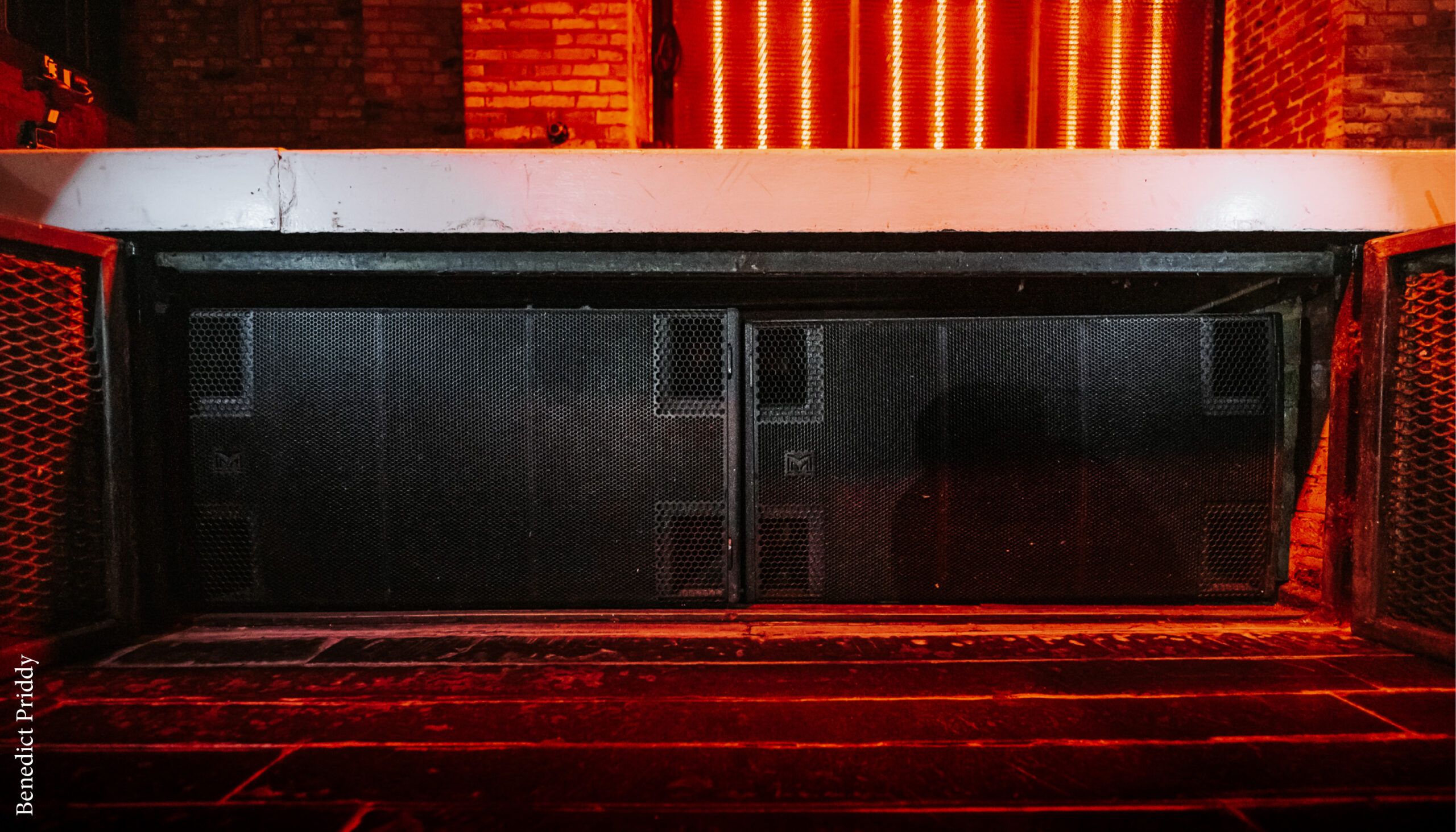
Meanwhile, four of the recently launched FlexPoint FP12s have replaced those original, custom-built Blackline F12s in the DJ booth, the latter redeployed to rear downfill duties “to make the size of the dancefloor a bit bigger”. New X15s distribute sound at mezzanine level along with two further repurposed Blackline F15s. Finally, four additional XE300 are available for nights featuring live bands or MCs.
Although the installation is taking place in phases, the verdict to date from fabric’s technical manager is already 100% positive: “The new system delivers a lot more power, and with the power availability of the amps we are never going to get near peaking. It’s very clean, tight and punchy… but it’s not about volume for us, we want to keep it sounding good rather than loud.”
Aside from the romance associated with preserving Martin Audio’s legacy system, there is also the emotional attachment with the custom F12s. “The number of DJs they’ve seen in Room 1, those F12s… you just can’t get rid of them,” concludes Smith. “Fortunately, we’ve found a really good use for them, and they are doing a great job in their new place.”


